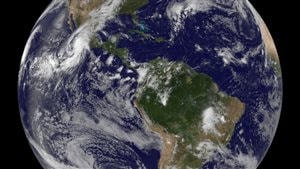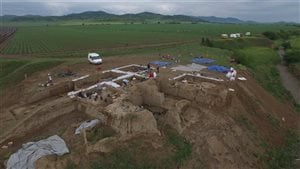Your hosts, Lynn, Levon, Marie-Claude, and Marc (video of show at bottom)
Listen
They are killers, and they operate and make decisions by themselves on when and where and who to kill.
And they’re not human.
These are artificial intelligence (AI) “killer robots” and an international group of scientists is raising the alarm and saying development of autonomous killing weapons should be banned.
They’ve launched the Campaign to Stop Killer Robots.
Lynn spoke to one of the Canadian scientists, Ian Kerr, a professor of ethics, law, and technology at the University of Ottawa
*

It was 25 years ago that a different group of concerned scientists got together to write an open letter about the state of the Earth and its environment, and what mankind was doing to it.
It was called a Warning to Humanity, and it said unless mankind stopped or at least scaled back its harmful ways, we were all headed for trouble
Now 25 years later over 15,000 scientists from 184 countries have written another open letter, Warning to Humanity Second Notice.
In it they spell out the fact that little has been done to stop or reduce harm, and in fact the environment and ecosystems, deforestation, biodiversity depletion and more, have all worsened.
Marc spoke to Karen Alofs, one of the scientists who signed the letter. She is a research associate in the department of Ecology and Evolutionary Biology at the University of Toronto
*

A team of University of Toronto archaeologists has contributed to the discovery of the oldest chemical evidence of wine found anywhere in the world, according to a recently published research study.
The discovery at two excavation sites in southeastern Georgia, about 50 kilometres south of capital Tbilisi, by a joint team of researchers from the University of Toronto and the Georgian National Museum dates the origin of winemaking to the Neolithic period around 6000 BC.
Levon talks to Stephen Batiuk, a senior research associate in the Department of Near and Middle Eastern Civilizations and the Archeology Centre at the University of Toronto.
Video of show
Posted by Radio Canada International on Friday, November 17, 2017
Images of the week







For reasons beyond our control, and for an undetermined period of time, our comment section is now closed. However, our social networks remain open to your contributions.